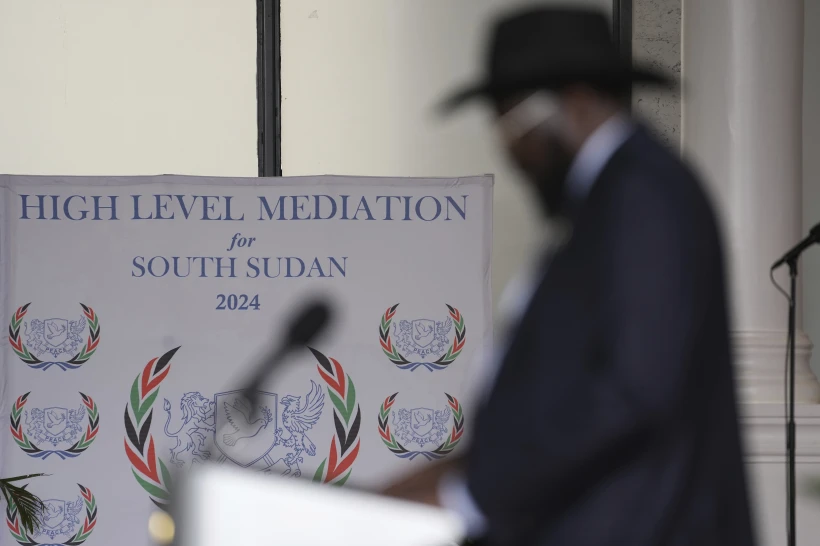After a four-month break, the peace talks in South Sudan have resumed in Nairobi, Kenya. The talks, which began in May, are aimed at addressing ongoing conflicts that have hindered the country’s growth and stability. The peace negotiations are between the government of South Sudan and opposition groups that did not join the 2018 peace agreement. This 2018 deal had ended a five-year civil war, which left over 400,000 people dead.
The latest round of peace talks, called Tumaini, which means “hope” in Swahili, aims to bring lasting peace to the country by uniting the government and other groups excluded from the 2018 agreement. The talks began with both sides signing a “commitment declaration” to work towards peace. However, they quickly faced delays and stalled.
The Setbacks to the Peace Process
The peace talks faced a setback when South Sudanese President Salva Kiir dismissed the government delegation involved in the negotiations. Following this, a new team was selected to represent the government. They were unable to travel to Nairobi for the talks on two separate occasions, adding to the delays.
The reasons behind these disruptions remain unclear, and no official explanations have been provided. Last month, President Kiir made it clear that these talks in Nairobi were not meant to replace the 2018 peace agreement. Instead, they aimed to address the concerns of holdout groups that had not signed the previous peace deal. Despite this, the government has struggled to fully implement the 2018 agreement, and as a result, the country has faced a growing economic crisis.
Economic Crisis and Postponed Elections
Years of conflict have severely affected South Sudan’s economy. The country relies heavily on oil exports for its revenue, but a damaged pipeline in neighboring Sudan has disrupted these oil exports. The country has delayed its elections, originally set for December 2024, until 2026 due to a lack of funds to complete the voter registration process on time.
The delay in elections has led to frustration. Citizens are facing an uncertain future as the country continues to struggle with political and economic instability. Civil servants have gone for more than a year without salaries, adding to the discontent among the population.
The Need for Commitment to Peace
The opposition side, led by the South Sudan Opposition Movement Alliance, emphasized that it was critical for the new government delegation to stick to the agreements made in previous discussions. They warned that the country was at a tipping point, and if the peace process failed, South Sudan could face even greater disintegration and chaos.
On the government side, representatives have called for all parties to focus on building upon the progress already made. They stressed that the aim was not to start the talks from the beginning but to move forward from the commitments that had been agreed upon earlier. The government representatives urged all parties to set aside their differences and work toward a solution that would benefit the entire country.
Human Rights Concerns and Legal Issues
One of the key issues raised during the peace talks is a new law that allows for detentions without arrest warrants. Both sides have expressed concerns that this law violates human rights and could lead to abuses. The law has sparked protests, and negotiators are calling for its reconsideration.
The chief mediator of the talks, Lazarus Sumbeiyo, called on all parties to focus on resolving these critical issues. He emphasized the importance of concluding the discussions on these outstanding matters, as it was vital for the future stability of South Sudan.
Looking Forward: A Final Chance for Peace
These peace talks may be South Sudan’s last chance for lasting peace. The country faces economic collapse and political uncertainty. It is crucial for the government and opposition to unite. The international community is watching closely. Everyone hopes both sides will resolve their differences. They aim to create a more stable and prosperous future for South Sudan.
The outcome of these talks will determine whether South Sudan can move past its history of conflict or continue down the path of instability. As the negotiations continue, the people of South Sudan, who have suffered for so long, are holding onto hope that this time, peace will prevail.

